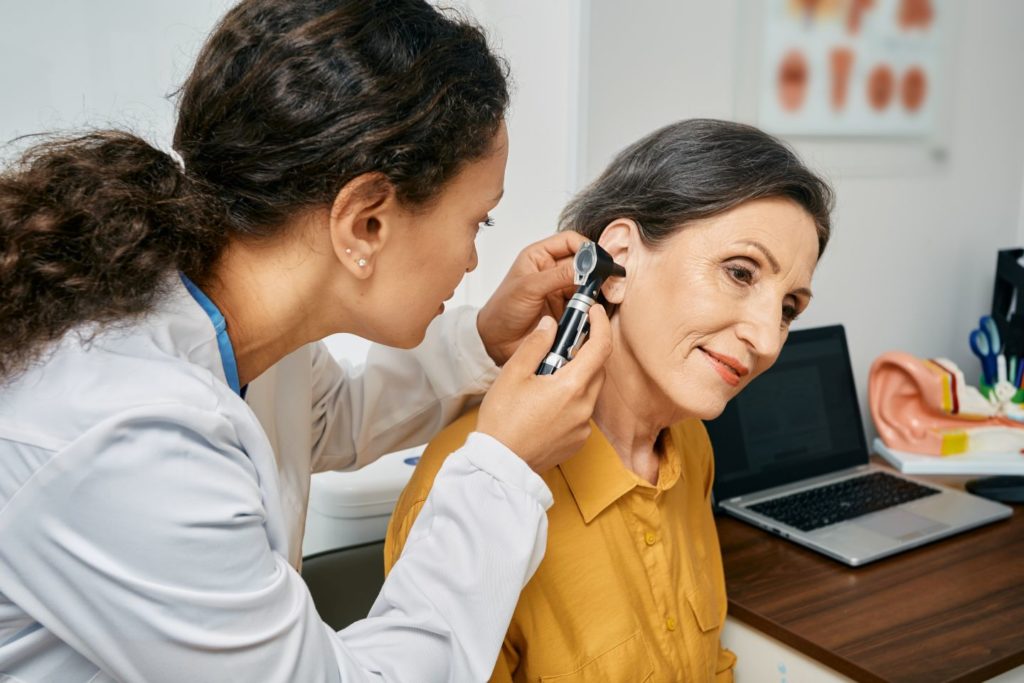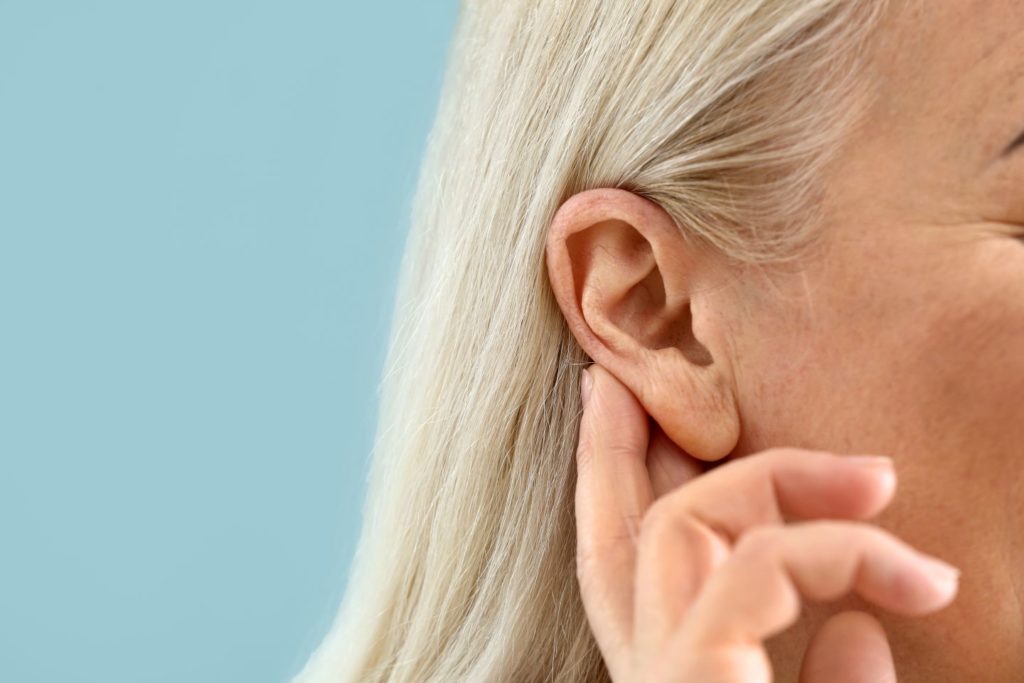When was the last time you thought about your ear health? For many of us, our ears are something we only pay attention to when something goes wrong, such as blocked ears, ringing, or hearing loss.
However, just like we care for our teeth, skin and eyes, looking after your ears and hearing health should be part of your regular self-care routine.
In this blog, we’ll explain how to properly care for your ears, when you might need a hearing test, and why proactive ear care is essential, especially as we age. Whether you’re concerned about your hearing, looking for advice on safe ear cleaning, or considering hearing aids, you’re in the right place.
Why ear health matters
Our ears do more than just help us hear. They play a vital role in our balance and overall well-being. Poor ear hygiene or neglected hearing issues can lead to discomfort, infections, or even long-term hearing loss.
Hearing is also closely tied to brain health – several studies have shown that untreated hearing loss can contribute to cognitive decline and social isolation, especially in older adults. That’s why early intervention and regular hearing checks are key to maintaining not just your ear health, but your overall quality of life.
How to clean your ears safely
When it comes to ear cleaning, less is more. Your ears are self-cleaning – earwax (also known as cerumen) is produced naturally to protect your ear canal by trapping dust, debris and bacteria.
Here’s what you should and shouldn’t do:
Do:
- Wipe the outer ear with a warm, damp cloth.
- Use ear drops (over-the-counter or prescribed) to soften excess wax if needed.
- Seek professional help if you feel your ears are blocked or if your hearing has become muffled.
Don’t:
- Use cotton buds, hairpins, or other objects to clean your ears – this can push wax further in or damage the ear canal.
- Overclean your ears. This can irritate the skin and lead to infections.
If you suspect a build-up of wax or are experiencing discomfort, it’s best to speak to a specialist. Earwax removal services, such as ear syringing or microsuction, may be recommended, both of which are safe and painless procedures when performed by a trained professional.

Spotting the signs: When do you need a hearing test?
Hearing loss can be gradual, so it’s easy to overlook the early signs. That’s why routine hearing checks are important, especially if you’re over 50 or have been exposed to loud noise regularly (e.g., at work or during leisure activities).
Common signs that you may need a hearing test include:
- Frequently asking people to repeat themselves.
- Turning up the volume on the TV or radio louder than others prefer.
- Struggling to follow conversations in noisy environments, like restaurants or family gatherings.
- Ringing or buzzing in your ears (tinnitus).
- Feeling that people are mumbling or speaking unclearly.
If any of these sound familiar, it might be time to book a hearing test. Early detection can make a big difference, and in many cases, modern hearing aids can vastly improve your hearing and confidence in social situations.
The importance of regular hearing tests
Just like eye exams or dental check-ups, hearing tests should be a part of your routine health care, especially from midlife onwards. It’s recommended that adults over the age of 50 have a hearing test every two years, or sooner if they notice changes in their hearing.
A professional hearing test is quick, painless and non-invasive. It will give you a clear picture of your hearing health and allow you to take action if needed. If hearing aids are recommended, today’s models are discreet, comfortable and packed with smart technology that can transform your daily life. From connecting to your smartphone to improving your focus in crowded places, hearing aids are no longer bulky or basic – they’re brilliant little tools that help you live life to the fullest.
Tips for long-term hearing care
Taking proactive steps now can help protect your hearing for years to come. Here’s how to care for your ears every day:
1. Protect your ears from loud noise
Exposure to loud environments like concerts, construction sites or even frequent headphone use can damage your hearing over time.
- Wear earplugs in noisy settings.
- Follow the 60/60 rule with headphones: listen at no more than 60% volume for no longer than 60 minutes at a time.
- Take regular breaks from noisy environments.
2. Don’t ignore ear pain or infections
If your ears feel sore, you have unusual discharge, or you’re experiencing hearing changes, don’t wait to see your GP or a hearing specialist. Untreated infections can damage your hearing and may require medical treatment.
3. Stay healthy overall
Hearing health is linked to general well-being. Conditions like diabetes, high blood pressure, and even stress can impact your hearing. Eat well, stay active, and avoid smoking – all of which can help maintain good circulation to the ears and reduce the risk of hearing loss.

Hearing aids: Modern, smart, and life-changing
If your hearing test indicates that you could benefit from hearing aids, there’s no need to worry. Today’s devices are discreet, stylish, and packed with advanced features.
Modern hearing aids can:
- Reduce background noise and enhance speech clarity.
- Connect wirelessly to your phone, TV or tablet.
- Automatically adapt to different environments.
- Be nearly invisible to others.
Most people who try hearing aids wish they’d done it sooner. Improved hearing brings back your connection to loved ones, music, nature, and life itself.
Book your hearing test today
Looking after your ears is just as important as looking after any other part of your body. Whether you’re noticing changes in your hearing, have concerns about earwax or infections, or simply want peace of mind, booking a hearing test is the first step.
We provide comprehensive hearing tests in our clinics across Derbyshire and West Yorkshire, with qualified professionals in a relaxed and friendly setting. We also offer free hearing tests that can be done in the comfort of your own home. If hearing aids are recommended, we’ll guide you through your options with utmost care and transparency, helping you find the perfect solution for your lifestyle and budget. Take control of your hearing health today.
